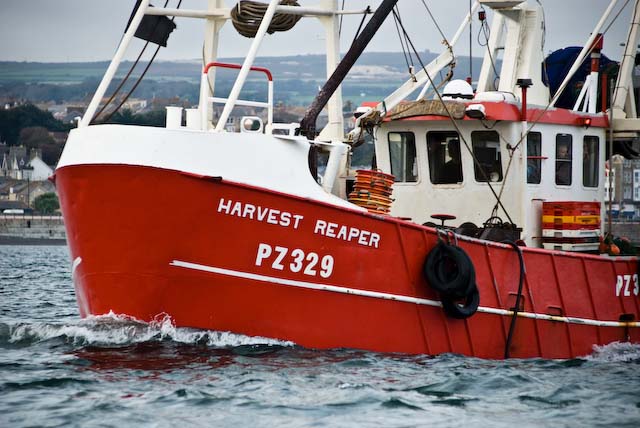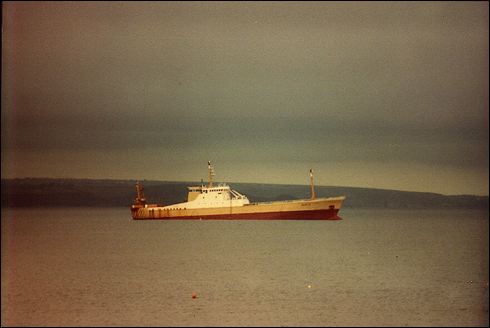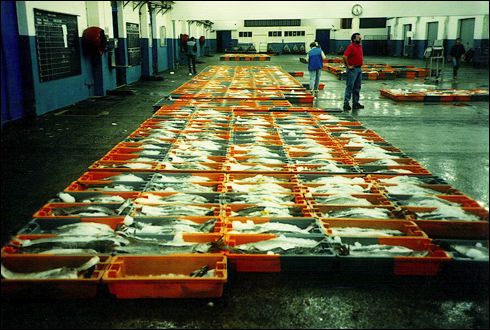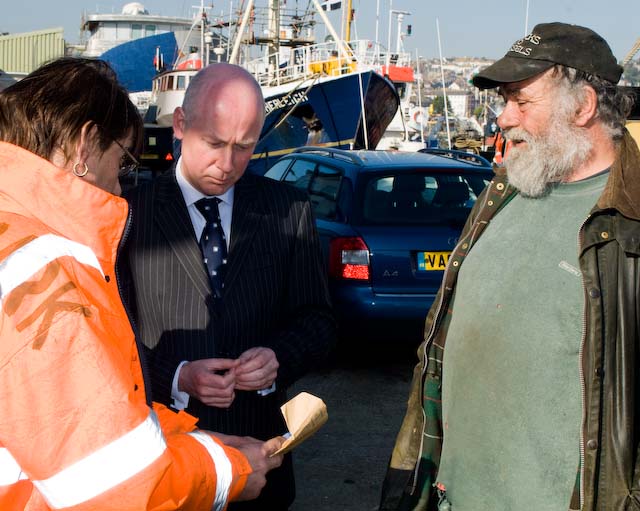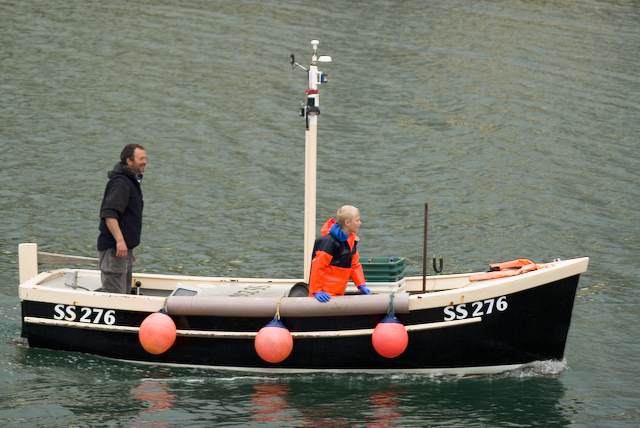Article courtesy of Ciaran O'Driscoll
To many reading the Marine Times, the topic of the European Union (EU) is one few wish to eagerly engage in. It is a discussion that is often filled with bitterness, frustration and often dismay as a result of their personal experience with the EU and its flawed Common Fisheries Policy (CFP).
But even after several EU referenda in recent years, is the fishing community as a whole in a better situation in understanding what the EU is and how it arrives at decisions that impact so many along the coast of this island?
It was noted by one Irish journalist that for the average EU citizen, their knowledge of the EU’s often cited complex institutions and functions is akin to that of understanding a sewage system; we all know it’s very important but don’t want to know a thing about it.
This is true when data is examined from some of the recent EU referenda. Two reports by the Dept. of Foreign Affairs under the same title (‘Attitudes and Behaviour in the Referendum on the Treaty of Lisbon’) were published in March 2009 and July 2010. It focused on the Treaty of Lisbon referenda, but also included data from the previous ones from the Treaty of Nice.
Both highlighted a positive opinion of the EU by Ireland at around 70%, however, they both clearly identified that there is a lack of knowledge of how the EU operates by those questioned in the survey. This in turn contributed to citizens becoming misled and confused as to what may or may not have been in the treaties i.e.: the issues of abortion, Irish neutrality, corporate tax control.
An example of this confusion involved many believing that with the possible loss of an Irish commissioner in the European Commission, under the Treaty of Lisbon, Ireland would lose their only voice in the EU. Although this proposal was removed, this belief was false due to the fact that Ireland has many low and high ranking voices within the EU from Permanent Representatives to Members of the European Parliament.
This confusion is a key highlight to what many term as the ‘democratic deficit’, where EU citizens see little connection, and thus understanding, between them and the EU at large.
Yet even with many lacking an clear understanding as to what is the EU, several high-profile statements from leading individuals from the EU recently identify that the EU as a whole is set to shift direction through deeper integration across the Union. It is expected the EU will play a greater role in many prickly policy areas which Member States had previously retained as their own responsibility. This will therefore dynamically change the roles and relationships between citizens, Member States and the institutions themselves.
It must be stated that this treaty change is not imminent, as the process takes place over several years involving inter-governmental conferences between Member States and the EU. These are organised at every treaty change to negotiate what such a change will consist of.
There is also little appetite to rush into another treaty change, due to the recent experiences with the failed Constitutional Treaty, and its successor Treaty of Lisbon, and the difficulties involved in both.
Previous Treaty changes involve preparing for further enlargement, changing the balance in the decision making between the institutions or Member States, such as a greater role for national parliaments or giving increased responsibility for the EU in policy areas. It is therefore the aim of each Treaty change to facilitate integration within the EU as a whole.
This push for integration is a theme very familiar with the European continent; it is what many refer to as the ‘European processes’. That is, the process of integration across the continent at economic, political and social levels.
This process goes back thousands of years of the continent’s history; from the birth and break-up of the Roman Empire, the Medieval Crusades, the Catholic Church’s Reformation, the French Revolution, the Great and Cold War to name but just a few. All of which have directly and indirectly effected the course of the modern face of Europe.
At the fore of this process today is the EU, shaping policy across a vast amount of legislation, from copyright protection to competition law, within an ever expanding number of Member States, which currently stands at 27.
But what has been the dominating element of the EU’s agenda since the start of the global economic recession, has been the ‘sovereign debt crisis’, or more commonly known as the ‘Euro Crisis’.
It exposed the faults of the single currency, ambitiously created in haste to integrate the vastly dynamic economics of the EU, thus glossing over the economic problems between its members in an attempt to bring greater prosperity to the continent.
The formation of the Euro during the 1990s, came at a period of a renewed call for greater European integration, this time on finalising what was previously the core of the European Economic Community (EEC), the common market.
The common market, along with the Common Agriculture Policy, was one of the key policies created when the EEC was set up in 1954 with the Treaty of Rome. It sought to bring to an end centuries of trade barriers between Member States as a means to increase the volume of the free movement of people, goods, capital and services.
It was another ambition to increase opportunity of employment and generate better economic fortunes between Member States by pooling the resources each possessed. The decades before had hindered its expansion due to external factors such as the oil crisis in the 1970s, to the global economic turn down which followed. This in turn fuelled the internal sluggishness to advance legislation between Member States who were slow to end their protectionist policies.
Just as elements to proceed with the finalisation of the common market were taking effect, the momentum behind this coincided just as the final decade of the millennium arrived, along with its significant and defining historical events. What were previously unyielding obstacles were then coming down in many parts of the world, and finally a divided continent had the chance to rebuild itself as a single entity when the Iron Curtain at last fell.
This momentum grew as the global economy expanded, ushering in a period of startling prosperity for many across the globe. Things would only go on in an upwards manner economically it was thought at the time, and many in the EU now believed that at long last, the opportunity had arrived that an often divided continent, could finally come together in solidarity through a single currency and begin charting together a new Europe defined by peace and prosperity for its citizens.
However, just over two decades later we find the continent in the throes of an economic crisis that has shaken it to its foundations. It has been repeated numerous times since the crisis first took hold, that the likes of this have not been seen since Great Depression. It is not just the economic similarities they speak about, but the social ones too.
Just as we have seen a rise in far-right group in many national parliaments across Europe, using the economic crisis as a back-drop to push their narrow-minded policies, we can see similarities to Europe of the 1930s. It was within that defining decade in the wake of the Wall Street Crash, where ignorance and a lack of understanding between the people of Europe grew, festered and became exploited by many to achieve positions of power, eventually yielding what would be a war of unprecedented suffering.
Although the idea of wide-scale war on the European continent is now deemed laughable and the basis of the plot for a book or video game, this reality of today was only achievable through the commitment and compromise of the founders of what has grown into the EU.
Born as a result of what was World War II, the European Coal and Steel Community (ECSC) was set up in 1951 through the Treaty of Paris, to make war between France and Germany ‘not only unthinkable but materially impossible’. This hope and proposed future was presented in a speech by French foreign minister at the time Robert Schuman. Such is the significance of his now famous Schuman Declaration on 9th May 1950 that the date is now celebrated across the EU as European Day.
He called for the formation of a collective European organisation of states in the wake of two wars to ensure such tragedies would never takes place again. Through the success of peaceful economic cooperation and integration between Germany and the other members of the ECSC, it set the precedent for the founding of the EEC on a platform of equality of countries, between countries as a lasting solution to ensure peace on the continent.
Just as Europe in the 1950s saw dramatic changes in terms of integration, Europe of the 2010s is about to see another such important step in the ‘European process’. As the EU begins the slow process of a Treaty change, as mentioned above, to bring about ‘more Europe’, a debate on the changes will undoubtedly take place in time to come.
However, it appears to be that the only time the average Irish citizen hears about the EU and its dimensions, in any sort of an informed manner, is around the time of a Treaty referendum. But the reports by the Dept. of Foreign Affairs highlight that even after the referenda citizens still possess a loose knowledge of the EU. Could this be sourced from the manner of the campaigns themselves?
When the parting shot rings out across the land, each of the opposing sides catapult themselves across the campaign start line and launch immediately into a brisk battle of yay or nay. Quickly, our homes come under siege with bombardments of leaflets cascading through the post box, while outside its mayhem with street by street combat for lamp posts and poster space. Although newspaper articles, television/radio debates, online blogs take place to discuss the topics at hand, snappy slogans and a few choice words take centre stage in order to boil the debate down into bit size treats, just like a tin of Roses.
What takes places is a short and sharp political campaign that often fails to engage citizens on what exactly the EU does for us as citizens. For example, we all know what a councillor or a TD is supposed to do, or not doing enough of; but what exactly does a European Commissioner actually do? What is the difference between the Council of the European Union and the Council of Europe? Why is the HQ for the European Parliament in Strasburg and not Brussels? Who is Ireland’s representative on the European Court of Auditors? Many, whether it is or not through any fault of their own, would not be to answer those questions decisively in an EU table quiz.
What this author is therefore aiming to do in the coming editions of the Marine Times, is to outline the institutions under the title of ‘The EU Series’. This will include looking at the five principle institutions; the European Commission, the Council of Ministers, the European Parliament, the European Court of Justice and the Court of Auditors along with other bodies that make up the EU. Next in ‘The EU Series’, Part II – The Treaties will be published in the next edition of the Marine Times.
Ciarán O’ Driscoll, originally from Castletownbere, Co. Cork, is currently undertaking a PhD on European fisheries policy at University College Dublin. He previously studied a BA in History, Politics and Social Studies and an MA in European Integration, both at University of Limerick.
This article first appeared in the October 2012 edition of the Marine Times
